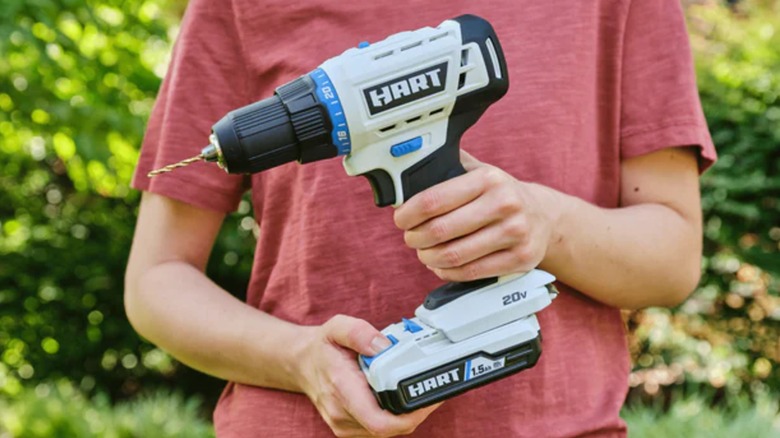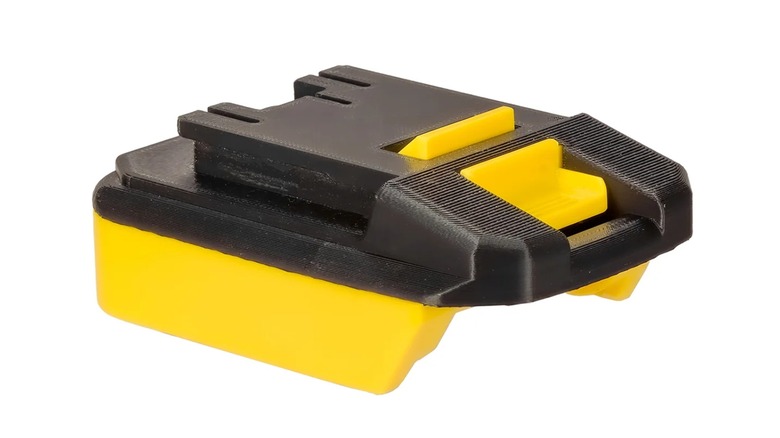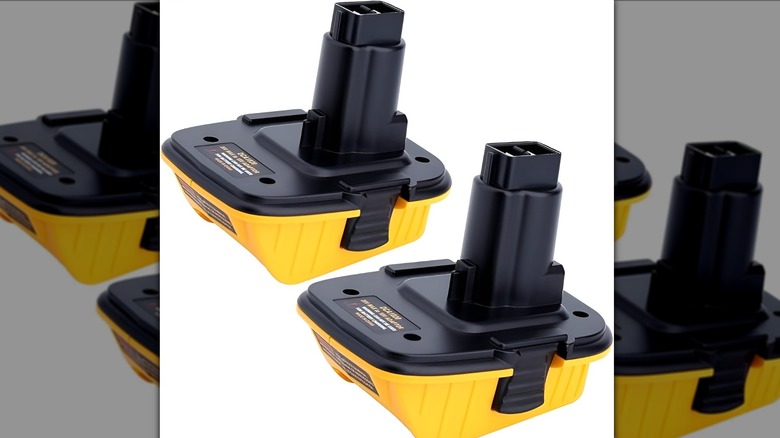Which Batteries Are Compatible With Hart Tools?
We may receive a commission on purchases made from links.
Walmart has a pretty sizable tool assortment for a store not solely dedicated to them. In fact, much like Home Depot and Lowe's, Walmart has its own exclusive line with Hart Tools. As one would hope from such a brand, it has a little bit of everything, from a bevy of hand tools to appliances for at-home cleaning to large outdoor appliances, and, of course, a litany of different power tools. From drills to saws to sanders, Hart possesses a diverse catalogue suitable for most needs — so long as they can be powered.
While the answer to whether Hart tools are any good is subjective, the matter of how they are powered is more straightforward. Like its competitors in the power tool space, Hart has gone all-in on lithium-ion power. In doing so, the company has established its own line of batteries. At the time of this writing, Hart batteries come in 20, 40, and 80-volt varieties, each with different amp hour levels to consider.
It goes without saying that this is the most ideal way to power Hart tools. However, you don't exclusively have to use Hart batteries on its accompanying tool line. There are workarounds to use other brands' power sources to get your work done.
Adapters are needed to use other batteries in Hart tools
Hart manufactures its batteries and tools to solely function with one another. Each component is designed to make mixing with other brands impossible. After all, doing this can force consumers to only buy its products. Naturally, in an effort to get around this tactic, customers and other companies have found ways to make the incompatible compatible.
Looking around online, one is likely to find a host of power tool battery adapters. These are intended to bridge the gap between different brands, saving you a bit of money from having to buy new batteries or tools. They often cover the big names too, such as the Milwaukee which, despite being made by the same company as Hart, is unable to pair with anything under the Walmart exclusive banner without the aid of an adapter.
As for Hart, a few different solutions have been created such as those available from Power Tools Adapters. Among its options are adapters that attach to DeWalt, Ridgid, and Milwaukee batteries. While battery adapters may seem like a smart money saver, they're not as perfect an alternative to Hart batteries as one would hope. There are some serious risks to be aware of before buying.
The risks of battery adapters
There's a good chance that a Hart battery adapter could serve you just fine. At the same time, knowing the risks you're taking when using such hardware is crucial. The biggest is that these are third-party adapters that neither Hart nor the battery brands they attach to have anything to do with. This means that they can be of dubious quality, either failing to function or, worst-case scenario, damaging the tool and battery. At that point, getting a refund for the faulty adapter will be the least of your worries.
Should your Hart tool and differing battery be harmed by an adapter, repairs or replacement could prove costly. Hart's tool warranty explains, "This warranty only covers defects arising under normal usage and does not cover any malfunction, failure or defects resulting from misuse, abuse, neglect, alteration, modification or repairs by other than Authorized Service Centers." Therefore, if a third-party adapter renders the tool inoperable, Hart won't help cover the bill. Other brands' batteries come with warranties possessing similar terms. Not only are you out of the money spent on the adapter — an effort to save initially — but now you need to purchase a new tool and/or battery.
Just as a Hart battery can't run a DeWalt tool, a Hart tool can't operate using another brand's battery without the aid of an adapter. In the long run, this workaround might not be worth it for short-term money-saving.


